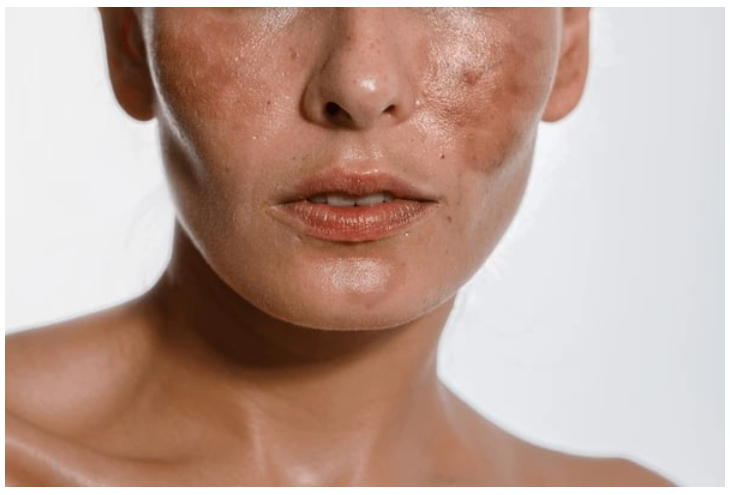How Hormones Affect Skin Pigmentation?
Authored by Dr. Sweta V Nakhawa, Dermatologist and Skin Specialist in Thane
Pregnancy is a miraculous journey marked by various physical transformations, including those affecting the skin. Hormonal fluctuations play a significant role in these changes, often leading to alterations in pigmentation.
Understanding these transformations is crucial for expecting mothers to maintain healthy skin and seek appropriate care.
As a renowned skin care surgeon and dermatologist in Thane, Dr. Sweta V Nakhawa sheds light on the intricate relationship between hormones and pigmentation during pregnancy.
Influence of Hormones on Skin Pigmentation
During pregnancy, the body experiences surges in hormones, particularly estrogen and progesterone. These not only regulate reproductive processes but also impact melanocytes, the cells responsible for melanin production in the skin.
The increased levels of these hormones can stimulate melanin production, leading to noticeable changes in skin pigmentation.

Unveiling Common Skin Changes in Pregnancy
Now that we understand the hormonal connection, let’s explore some of the most common pigmentation changes you might encounter during pregnancy:
Melasma: The “Mask of Pregnancy”
This is a fancy term for those dark, irregular patches that often appear on the forehead, cheeks, and upper lip. It’s like a mask (hopefully not a scary one!), hence the nickname.
Here’s the catch: sun exposure can worsen melasma, so be extra diligent about sun protection!
Linea Nigra: The Midline Mark
Don’t be surprised if a dark line appears on your abdomen during pregnancy. This line, called linea nigra, runs from your belly button down to your pubic area. It’s a natural consequence of hormonal changes and usually fades after childbirth.
Chloasma (Butterfly Mask): A Variation of Melasma
Chloasma is similar to melasma, but it tends to concentrate across the bridge of the nose and cheeks, resembling a butterfly’s wings. Unlike melasma, which usually appears only during pregnancy, chloasma can occur due to hormonal fluctuations even outside of pregnancy.
Increased Pigmentation Around Nipples, Areolas, and Genitals
A natural darkening in these areas is a common and temporary change during pregnancy. It’s your body’s way of preparing for breastfeeding.
Minimizing Pigmentation Changes During Pregnancy
While these changes are normal, there are ways to minimize their impact:
Sun Protection is Paramount
This is the golden rule! Apply sunscreen with SPF 30 or higher every single day, even on cloudy days. Consider incorporating sun-protective clothing, hats, and seeking shade whenever possible.
Gentle Skincare Routine is Key
During pregnancy, your skin might become more sensitive. Stick to fragrance-free cleansers and moisturizers formulated for sensitive skin. For personalized recommendations, consult Dr. Sweta V Nakhawa, a Dermatologist specialist in Thane.
Minimizing Triggers
Certain medications and hormone therapies can worsen pigmentation. Discuss any concerns you have with your doctor to find alternative solutions if possible.
Addressing Skin Changes: Tips and Strategies
Maintaining healthy skin during pregnancy requires a combination of sun protection, skincare routines, and professional guidance.
Dr. Sweta Nakhawa advises pregnant individuals to:
- Apply sunscreen with SPF 30 or higher daily.
- Cleanse the skin gently with mild, pregnancy-safe cleansers.
- Use moisturizers containing hyaluronic acid to hydrate the skin.
- Avoid harsh chemicals and procedures, especially those containing retinoids and salicylic acid.
- Consult with a dermatologist or skin specialist for personalized treatment recommendations.
Pregnancy-Safe Treatments for Pigmentation
While some treatments for pigmentation may not be suitable during pregnancy due to potential risks to the fetus, there are safe alternatives available. Dr. Nakhawa suggests:
- Topical treatments containing ingredients like vitamin C, licorice extract, and niacinamide.
- Chemical peels with gentle acids such as lactic acid or fruit enzymes.
- Laser therapies performed by experienced dermatologists using pregnancy-safe protocols.
It’s essential for pregnant individuals to consult with a qualified healthcare provider before undergoing any treatment to ensure its safety for both mother and baby.
Looking for a dermatologist and skin specialist in Thane?
Dr. Sweta V Nakhawa is here to guide you through all your skin concerns, from pregnancy-related changes to lingering pigmentation. Schedule your consultation today and embrace your beautiful, ever-changing skin!
Remember, while these changes are common, seeking professional advice is crucial for addressing any concerns and creating a personalized skincare plan.
Conclusion
Understanding the impact of hormones on pigmentation during pregnancy empowers expecting mothers to navigate these changes effectively.
By implementing sun protection measures, adopting a gentle skincare routine, and seeking professional guidance when needed, pregnant individuals can maintain healthy, radiant skin throughout their journey to motherhood.
Dr. Sweta V Nakhawa, a trusted skin care specialist in Thane, stands ready to assist pregnant individuals in addressing their skin concerns with expertise and compassion.
